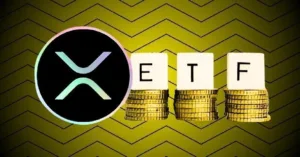Throughput is how many actions can be completed in a given time frame.
Throughput is a measure of how many actions are completed within a given time frame. In the blockchain space, transaction throughput refers to a rate of how fast a blockchain processes transactions, which is commonly expressed in transactions per second (TPS), but may also be expressed in minutes (TPM) or hours (TPH).
The consensus mechanism employed by a blockchain platform determines a decentralized protocol’s transaction throughput. For example, a proof-of-work (PoW) blockchain like Bitcoin has a lower throughput compared to a proof-of-stake (PoS) network like Cardano. Other factors that affect throughput include a blockchain’s block size, traffic and complexity of transactions.
Note that traffic is the network’s load at a given time. As such, a high load means less speed and vice versa.
There are times when slower blockchains like Bitcoin may execute transactions quicker than, say Ethereum, due to the complexity of transactions. While Bitcoin transactions are exclusive to asset transfers, Ethereum can be used to process complex transactions like minting non-fungible tokens (NFTs), trading on DEXs, etc., which require more computing power, hence, more load on the network.
To increase a blockchain’s throughput, developers use various methods such as rollups, sidechains, state channels, new consensus mechanisms, and block size increases.




